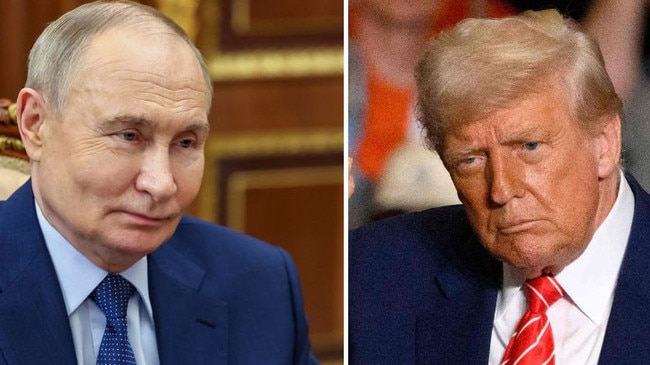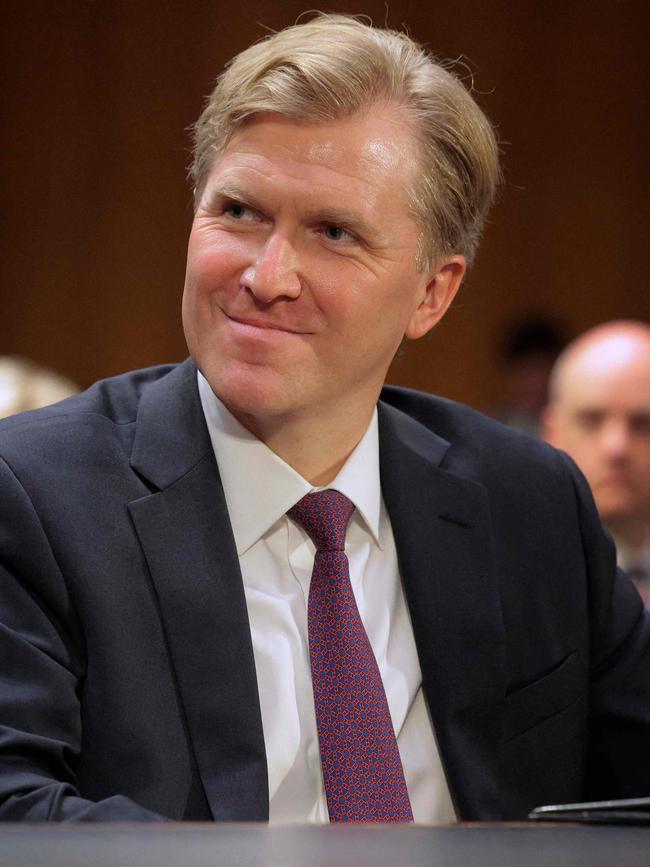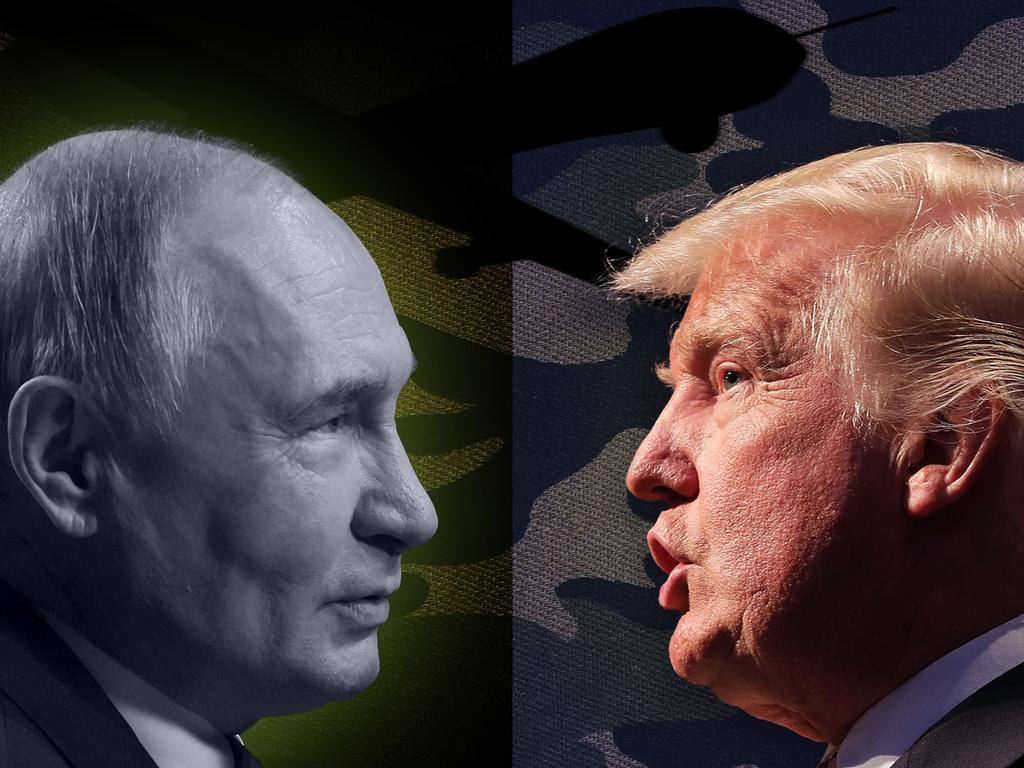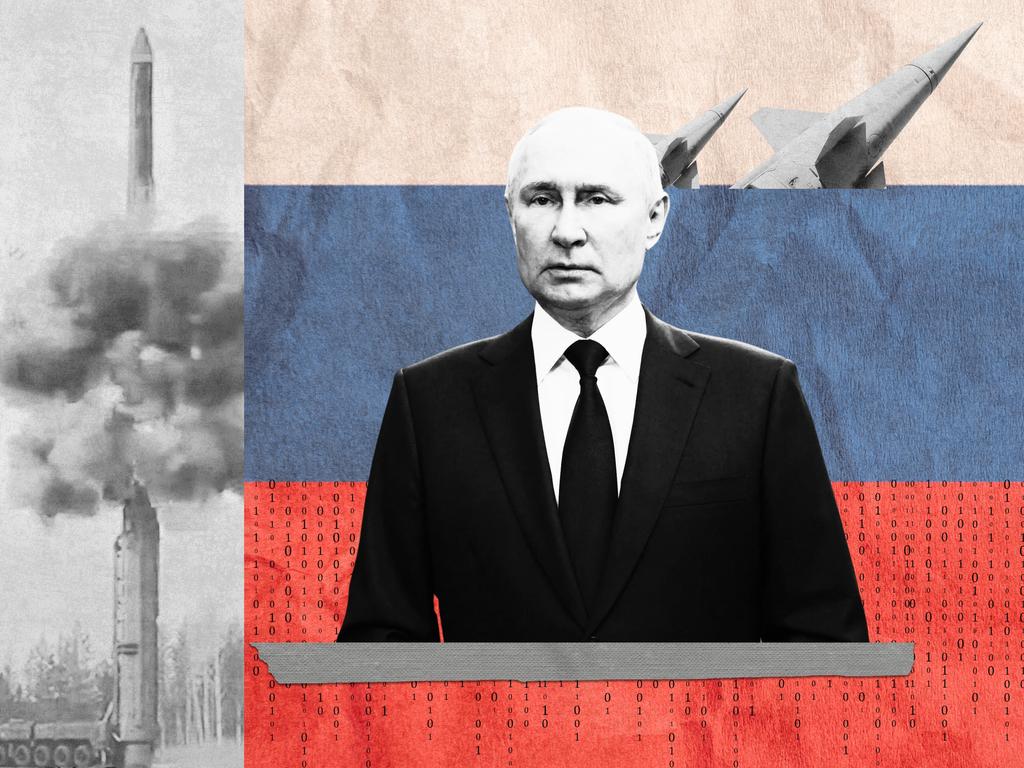
Successful international statecraft requires a sophisticated understanding of domestic politics at home and abroad. It also requires a clear understanding of history. Donald Trump clearly understands politics. But, as people who know him tell me, he doesn’t read history.
There are three historical lessons he and his team should reflect on. The first is what is known as the Great Northern War at the beginning of the 18th century. Over two decades, the Russians led by Peter the Great – whom many regard as the father of modern Russia – fought the Swedish empire and finally destroyed it. In its place they built their own Russian empire in Eastern Europe.
Rest assured Vladimir Putin knows all about it. It is a window into the way Russians approach this war. They are prepared to persist, year after year, regardless of the cost. They are confident that if they stick at it for long enough they will finally win. That’s the Russian strategy in Ukraine: like Peter the Great, the Russians think they can gradually wear down their opponents and win back control of Eastern Europe.
The second history lesson is for the Europeans. They need to remember the behaviour of Franklin D. Roosevelt at the Yalta conference of February 1945. The American president wasn’t too fussed about Stalin’s plans to take over much of Eastern Europe – even though Churchill was distraught about it.
The point is, the fate of Eastern Europe wasn’t in the front of Roosevelt’s mind. He was more worried about the war against Japan and the prospect of losing hundreds of thousands of GIs in an attempt to invade Japan and end the war.
Today, as the now US Undersecretary for Defence, Elbridge Colby, told me last year, the American foreign policy establishment is much more worried about China than it is about Russia and Ukraine. After all, remember the worst thing that could happen to the world is war between the US and China – triggered, perhaps, by a Taiwan crisis.
Viewed from Washington, America has other, more serious issues to deal with than Russia. After all, Russia’s GDP is only about one-tenth the GDP of the European Union and its population one-third of the EU’s. Russia is hardly likely to mount a full-scale invasion of central and Western Europe, particularly as those countries are all bound together in the NATO alliance.
And then there is the third history lesson. The Europeans signed up to détente during the Cold War; Europe accepted the existence of the Soviet Union and the Soviet empire, and under the doctrine of détente developed strategies for coexistence.

Ronald Reagan, supported by Margaret Thatcher, rejected détente. Reagan called the Soviet Union an evil empire and demanded Mikhail Gorbachev tear down the Berlin Wall. Conventional diplomats were horrified.
But Reagan stuck with his policy, which became known as peace through strength. He invested heavily in sophisticated missile defence systems and made it clear to the Soviets that, technologically, they would never be able to match the US. Finally, the Soviet Union crumpled and its empire was disbanded.
Trump would be best advised to study Peter the Great and Reagan, and then he might find the answer to how to achieve a ceasefire in Ukraine.
I don’t criticise Trump for trying to achieve a ceasefire over the past three months, although his tactics have at times been alarming. After all, this is a war that has killed close to half a million men, women and children since it began in 2014.
What’s more, it is causing very substantial economic disruption. But Trump is learning that, despite his different tactics to lure Putin into a ceasefire, Putin is guided by the durability of Peter the Great.
Trump would be better advised to take a leaf out of Reagan’s book. He needs to have a simple, clear message for Putin. If he wants to end the war quickly – and he does – he will have to tell Putin that the US and its allies under no circumstance will allow Ukraine to be captured by the Russian military. The West may not have a formal alliance with Ukraine, but Putin needs to be persuaded he can never win.
There are signs Trump is finally coming to the conclusion he won’t be able to talk Putin into a ceasefire. In the past week, the Americans and the Europeans have agreed to lift the limits on the use of their missiles by the Ukrainians.
This should have been done years ago, but the Biden administration subscribed to the doctrine of de-escalation, which was as successful as Trump’s attempts to get Putin to agree to a ceasefire. Neither strategy has worked.
More sophisticated military equipment will have to be provided to the Ukrainians and new sanctions on Russia, particularly on its energy exports, will have to be introduced. This peace-through-strength approach will have implications for other parts of the world.
Unless the Iranians really believe the Americans and the Israelis will launch a military attack on their nuclear facilities, they will never agree to constrain their uranium enrichment program. And as for China, the Australian government should be telling Trump that the Chinese leadership in Beijing will be influenced by the robustness of the US’s response to Putin.
Weakness is provocative. The dangers of the Chinese Communist Party blockading Taiwan will be substantially reduced if China’s President Xi Jinping sees Trump give up on Putin and pour resources into helping Ukraine stave off Russian adventurism indefinitely.
All these trouble spots are linked: Ukraine, Iran, China, Taiwan and North Korea. China is Russia’s ATM; North Korea has provided the Russians with thousands of troops; Iran has been providing Russia with military drones; Russia has been providing China with cheap energy, as has Iran.
That’s the last lesson for Trump; the US’s greatest strength is not its military, but the extraordinarily robust and cohesive network of alliances. China, Russia and Iran have nothing like those relationships.
But they do have each other, and if Trump wants to underwrite the peace of the world – which admirably he does – he needs to remember that peace can only be achieved through the strength of the US’s military and the cohesion of its alliances.







